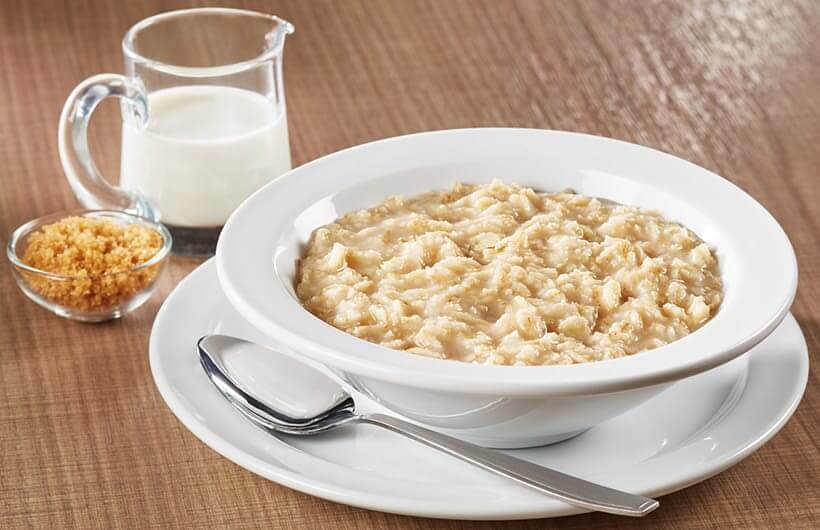
Because hypertension affects not only the elderly but increasingly young people who ignore a healthy lifestyle, more and more people are focusing on the prevention of high blood pressure through diet and exercise. Here are four tips we recommended for your diet.
1. Breakfast - oatmeal
Scientists have discovered that eating a bowl of oatmeal in the morning for an uninterrupted eight weeks can reduce cholesterol by 10% in the bloodstream, which is effective in controlling or reducing the weight and bringing the blood fat to normal levels. Therefore, this method is especially suitable for overweight people with high blood lipids who have coronary heart disease, but also for healthy people who care about their health.
It is possible to mix the oatmeal with milk, which helps to lower the blood fat and provides rich protein, thus helping to keep a balanced nutrition.

2. Lunch - beans
Bean products, as an important source of high-quality protein, should be the primary choice for lunch, because the beans not only provide food at a low price but are also beneficial to lower the blood lipid level. In addition, research indicates that soy protein can lower blood cholesterol levels and should be preferable to animal protein. If you decide to eat half a bowl of beans every day for eight weeks, people with high cholesterol can reduce their levels by 20%, and healthy people can lower the risk of cardiovascular disease.
3. Dinner - garlic
An effective way to reduce excessive cholesterol is to consume three pieces of garlic every day for eight weeks.
Garlic is always used to prevent hyperlipidemia, coronary heart disease, and hypertension since the allicin - one of the nutrients in garlic - can convert the blood clot into blood formation in the thrombus. The frequent ingestion of garlic helps to reduce the deposit in the walls of the blood vessel, which is the main trigger of coronary heart disease. Long-term deposition can hinder the movement of the artery and reduce vascular elasticity, thereby inducing a stroke or myocardial infarction.
4. Steamed or stewed seawater fish
Most of the fat in fish consists of unsaturated fatty acid, which can easily be digested by the human body. The fat and nutrient content of seawater fish, however, differs to a large extent from freshwater fish, for example, the unsaturated fatty acid accounts for 70% to 80% of the compound of seawater fish. As acid can reduce blood fat and improve thrombosis, eating fish helps prevent or reduce thrombus formation. Therefore, sea fish is beneficial for people with high cholesterol. To maintain the original nutritional value, you can stew or steam the sea fish twice a week with water.
